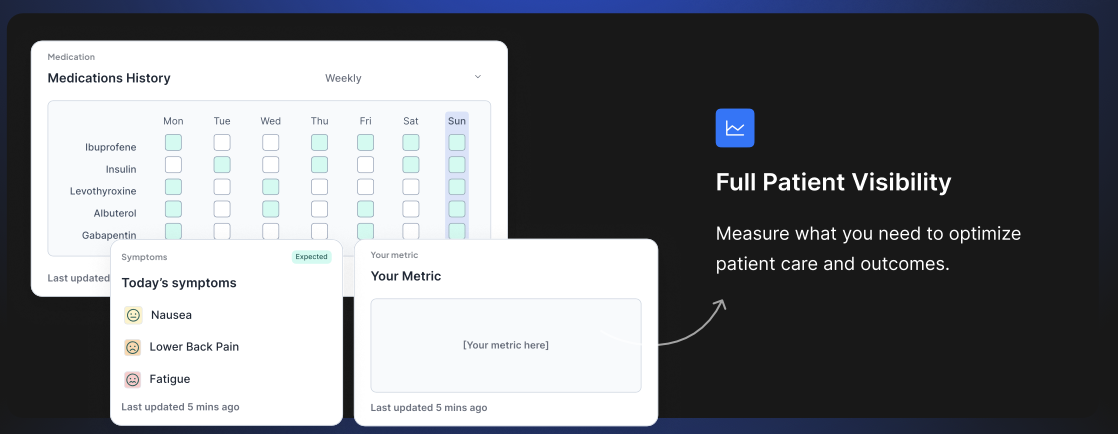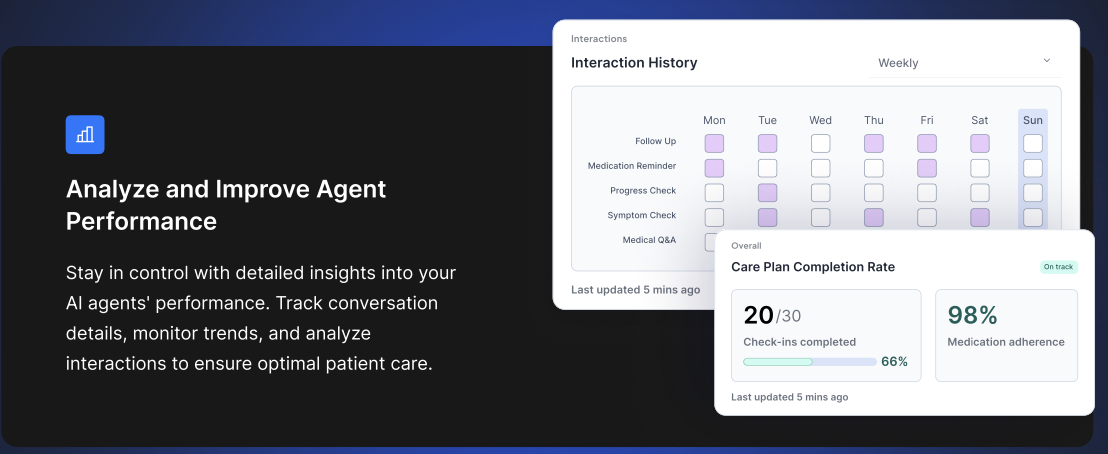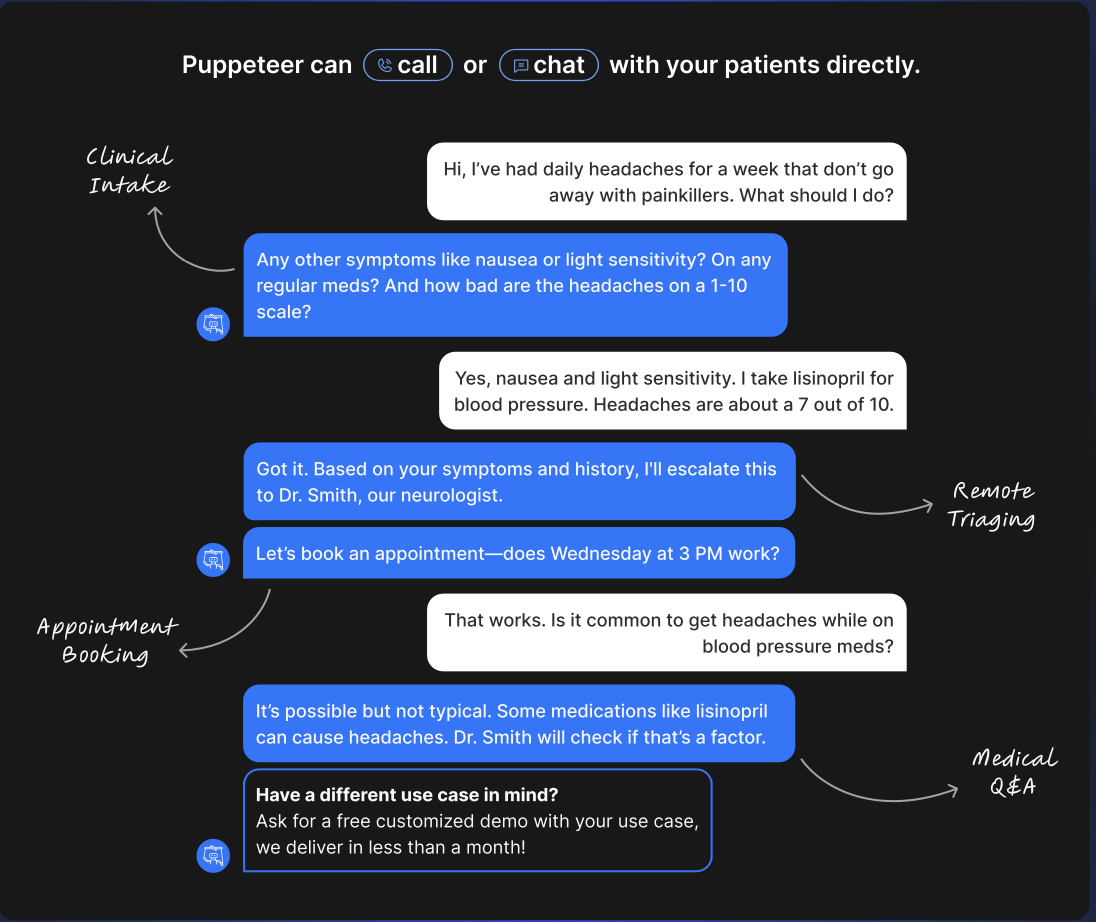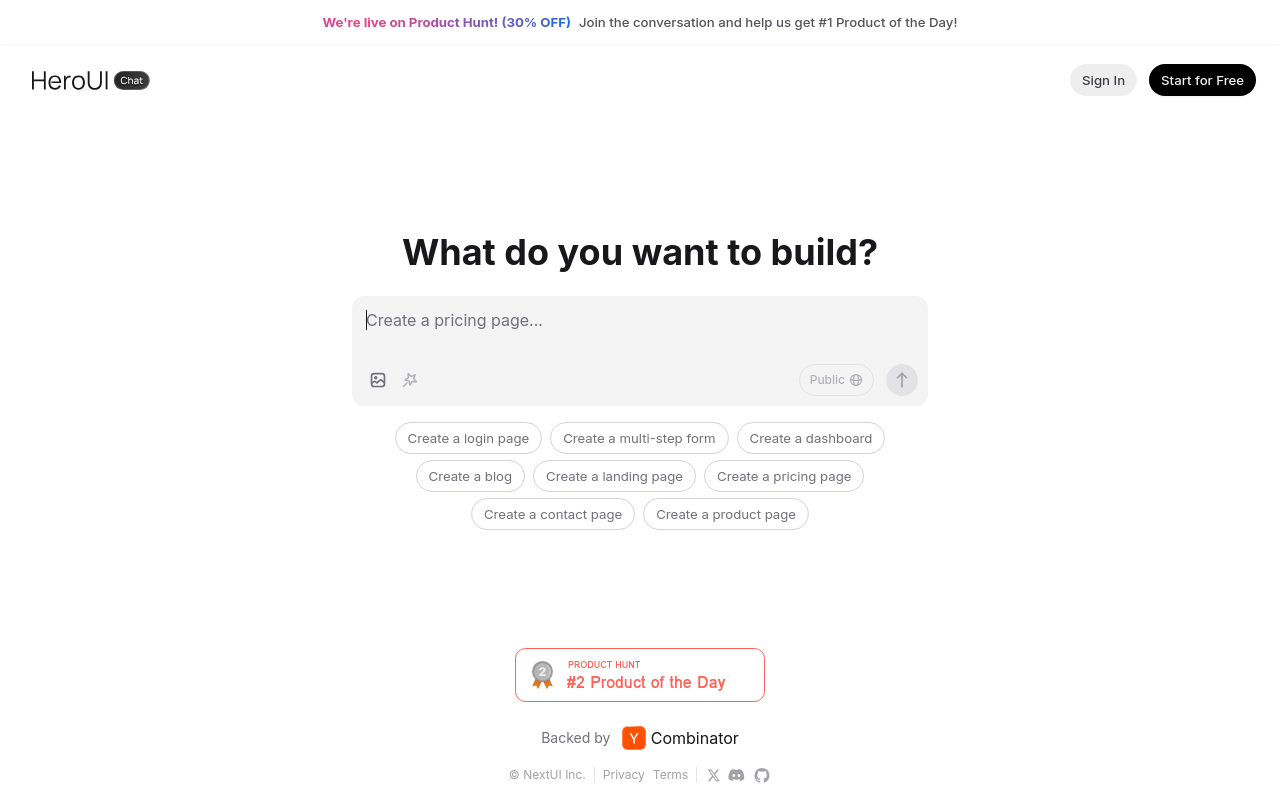Puppeteer
Puppeteer is a platform that allows healthcare providers to build AI Agents that can talk to patients via text or voice. It can handle clinical intake, triaging, scheduling, or monitoring ongoing treatment. Our AI Agents integrate with EHRs and answer questions based on the provider's knowledge base.
Puppeteer’s platform is fully customizable, integrates with existing systems, and complies with patient privacy regulations like HIPAA and PIPEDA.
Key Features:
Conversational AI: Voice and chat capabilities for natural, human-like interactions.
Custom Dashboards: Track patient progress, follow-ups, and engagement through intuitive data visualizations.
Knowledge Base Support: Advanced AI techniques like Retrieval-Augmented Generation (RAG) for accurate, context-aware responses.
Human-in-the-Loop: Manual oversight for scenarios requiring high accuracy.
Integration Ready: Seamless connection to EHRs and other systems.
Scalable Model: Flexible pricing based on agent usage, accommodating organizations of any size.
Broad Use Cases:
Administrative Automation:
- Appointment scheduling and reminders.
- Rescheduling and cancellation management.
- Verifying insurance details and eligibility.
Patient Education and Engagement:
- Delivering condition-specific educational materials.
- Sending video tutorials, FAQs, or interactive guides for treatments.
- Answering patient questions in real-time.
Symptom Assessment and Triage:
- Pre-appointment symptom checkers.
- Directing patients to appropriate care pathways based on their conditions.
- Identifying emergency cases and escalating them as needed.
Treatment Adherence Support:
- Medication reminders and follow-ups.
- Monitoring treatment plans (e.g., GLP-1 adherence for weight management).
- Checking patient progress and identifying challenges.
Post-Discharge Monitoring:
- Daily check-ins for post-operative patients.
- Tracking recovery metrics like vitals, symptoms, and mood.
- Providing guidance and scheduling follow-up appointments.
Chronic Condition Management:
- Supporting patients with diabetes, hypertension, or asthma through regular reminders and check-ins.
- Collecting data for personalized insights to guide care adjustments.
Mental Health Support:
- Screening for depression, anxiety, or substance use disorders.
- Conducting well-being check-ins and mood tracking.
- Providing resources for emotional support and crisis intervention.
Preventive Health Initiatives:
- Encouraging screenings like mammograms or colonoscopies.
- Sending vaccination reminders and follow-ups.
- Promoting wellness programs through targeted outreach.
Specialized Monitoring:
- Managing weight-loss programs with tools like digital scales.
- Guiding patients through fertility treatments or menstrual cycle tracking.
- Supporting post-stroke recovery with daily assessments and therapy reminders.
Operational Efficiency:
- Automating patient intake forms with conversational flows.
- Following up on incomplete paperwork.
- Collecting pre-visit information to streamline in-office processes.







